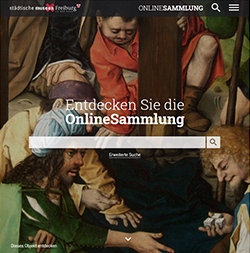Insights into the History of the Collection
Wolffhügel Family
Erich und August Wolffhügel
The only entry on the benefactors' roll of honour which covers several people is from 1900: the Wolffhügel family. From the archives of the Museum für Natur- und Völkerkunde (Museum of Natural History and Ethnology) it is clear that the tribute refers to August Wolffhügel, born on 24 April 1841 in Landau and deceased on 20 April 1914 in Freiburg, and his son Erich Wolffhügel (4 April 1871–?). Erich Wolffhügel worked as a tobacco planter and plantation owner on the Indonesian island of Sumatra and, through his father, donated various natural history and ethnological items from Asia to the museum. After his time overseas, Erich Wolffhügel moved to Freiburg, living there from 1918 until 1919 before moving to Ludwigsburg. This is all that is known about the lives of August and Erich Wolffhügel.
Wolffhügel Donation
The collection, which was sent to the museum by Erich Wolffhügel in 1899, contained ethnological objects from Sumatra in Indonesia. Today, a total of thirty-three Indonesian objects from this donation are logged in the ethnological inventory. This includes a long-necked lute, bamboo objects, textiles, parts of a loom and several small objects. His donation to the natural history collection comprised sixteen reptiles and two pangolins (scaly anteaters).
His father, August Wolffhügel, who helped to arrange his son's overseas collection, donated fourteen native birds to the museum.





